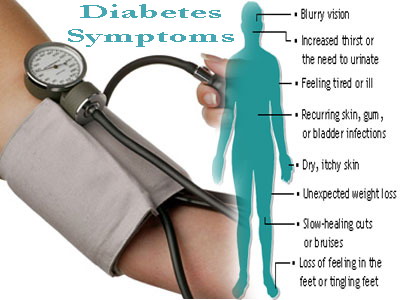Unless something bad occurs, most signs and symptoms of diabetes are dismissed as being minor annoyances and are usually ignored. Of all diabetes sufferers, nearly a third don’t realize they have the disease since the diabetes symptoms are fairly mild and unnoticeable in the beginning.
In the absence of other factors, the signs and symptoms of diabetes are troublesome to recognize so it helpful to learn about the different symptoms and the different types of diabetes. Making an effort to learn about diabetes can serve to aid you recognize diabetes symptoms in yourself or someone you care about. There are 3 basic kinds of diabetes, insulin-dependent or Type 1 diabetes, non-insulin-dependent or Type two diabetes and gestational diabetes.
Type 1 diabetes was once called juvenile diabetes since it mainly affected children and young adults. With Type 1 diabetes, the body is unable to produce insulin and the immune system typically attacks the pancreatic cells. Type one diabetics require insulin from an external source since their bodies are unable to produce it naturally. Type one diabetics are at greater risk for developing heart disease and kidney problems in addition to suffer from nerve damage and problems with vision.
Commons symptoms for both Type 1 and Type 2 diabetes include extreme tiredness, nausea, increase in thirst, more frequent urination and problems with maintaining weight.
Even however Type two diabetes is the more typical form of diabetes, diabetes symptoms alone’ll not be enough to indicate the presence of the disease. You can live with plenty of signs and symptoms of diabetes for a long period of time, sometimes years before other complications arise. The signs and symptoms of diabetes frequently look like the natural aging process and as a result are not viewed as alarming. Because early signs and symptoms of diabetes can appear fairly harmless, it is vital to be tested for the disease once your reach your forties.
As you will guess, gestational diabetes takes place only during a pregnancy. Blood sugar levels can and do fluctuate somewhat during standard pregnancies, however it they are elevated for long periods, there may be a issue. As few as four% of all pregnant women develop gestational diabetes, however it is still necessary to monitor for it at various stages of the pregnancy. Your unborn baby can be injured and you could be at risk for miscarriage or other complications if gestational diabetes is left untreated. Symptoms of gestational diabetes are similar to those of the other types of diabetes and as well include recurring urinary tract and vaginal infections, nausea, extreme fatigue, greater thirst and more frequent urination. Several of the gestational diabetes symptoms are rather similar to typical symptoms of an ordinary pregnancy, so it is essential to be screened for diabetes during pregnancy.
While not each symptom raises the specter of diabetes, it is vital to pay attention to the risks and search out medical attention if you suspect something is not right. Diabetes is a serious disease with severe and life threatening consequences if ignored.

